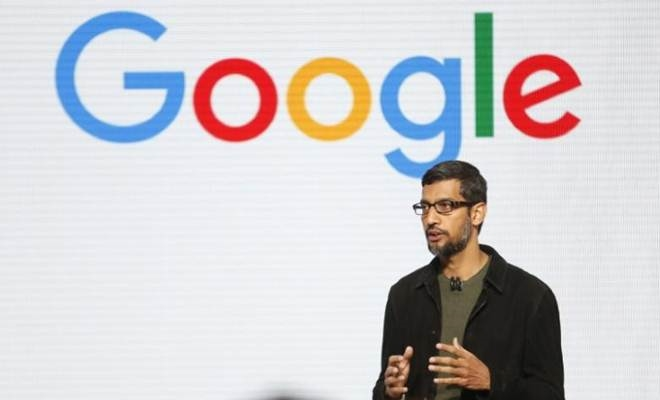In a wide-ranging interview with Bloomberg, Google CEO Sundar Pichai addressed some of the most pressing questions facing Big Tech today: Why should users trust companies that store their most private data? His answer was straightforward but bold: “We earned the trust.”
Pichai cited Gmail, now in its second decade of storing sensitive emails for billions of users worldwide, as evidence of responsible stewardship. “We’ve handled that content responsibly,” he said, asserting that Google has protected its users from “bad actors” and “unwarranted requests,” referring implicitly to data breaches and government surveillance overreach.
The conversation arrives at a critical moment, with public faith in tech companies at a crossroads, spurred by years of controversies over surveillance, algorithmic bias, and opaque data-sharing practices. Pichai’s remarks seem aimed at reinforcing Google’s narrative as a privacy-conscious innovator rather than a monopolistic data hoarder.
AI Personalization or Privacy Invasion? Walking the Tightrope
As generative AI reshapes the digital experience, Pichai acknowledged that user expectations are evolving rapidly, especially with tools like Gemini AI and Gmail integration. Responding to concerns that AI could amplify data privacy risks, he suggested that personalization efforts are being driven largely by user demand.
“You know, the biggest thing people ask with Gemini and Gmail is ‘Why can’t it write more like me?’,” he said. “It’s an ask we are responding to.”
Yet this line of defense glosses over deeper anxieties: how much of me does Google need to know in order to sound like me? Critics argue that tech companies often blur the line between personalization and profiling, using granular user data to power ever-more predictive systems that serve both convenience and commercial interests.
FCRF x CERT-In Roll Out National Cyber Crisis Management Course to Prepare India’s Digital Defenders
Pichai’s framing implies user agency, but the underlying infrastructure powered by massive data aggregation and machine learning—remains largely opaque and unregulated. For many privacy advocates, that remains the real problem.
The Antitrust Battlefield: Search, Ads, and the Future of Google
Perhaps the most contentious moment of the interview came when Pichai addressed the growing antitrust pressure in the United States, particularly lawsuits related to Google’s advertising technology stack and search monopoly.
With a trial scheduled for September, U.S. regulators have proposed that Google divest key portions of its ad tech business to curb its alleged dominance in the digital ad market. The DOJ argues that Google exerts excessive control over how ads are bought, sold, and displayed—effectively acting as broker, exchange, and auctioneer in a trillion-dollar global industry.
Pichai remained defiant: “I don’t think there’s anyone here who is using anything they don’t want to use… The reason people use Google is because they want to use it, right?”
He further stated that the company disagrees with the court’s antitrust rulings, emphasizing that Google is actively appealing. “We still strongly believe the court’s original decision was wrong,” he said. “Competition is good for the world. That’s how I see it.”
Yet critics argue that Google’s dominance is less about consumer preference and more about default settings, exclusive contracts, and vertical integration—factors that reduce choice even while maintaining the illusion of it.
Looking Ahead: Trust, Transparency, and Trial by Regulation
Sundar Pichai’s remarks reflect a broader strategy: positioning Google not as a monopolistic behemoth but as a responsible innovator trusted by billions. But as AI, privacy, and competition continue to collide, the company’s future may hinge less on press appearances and more on courtroom verdicts.
With a pivotal antitrust trial looming, the tech world is watching closely. Will Google’s defense of “user choice” stand up to legal scrutiny? Or will regulators finally pierce the armor of Big Tech’s biggest titan?
Either way, 2025 is shaping up to be a defining year for Google and for the future of trust in the digital age.



